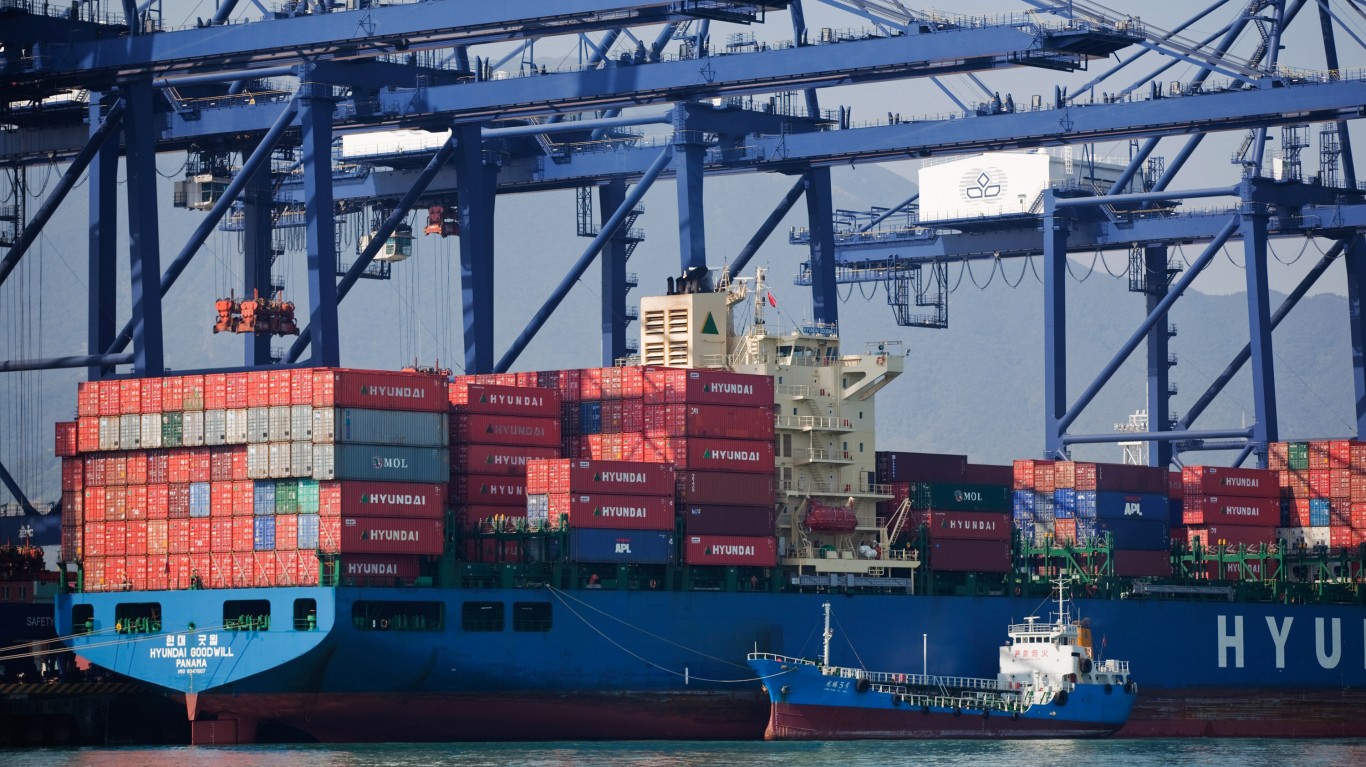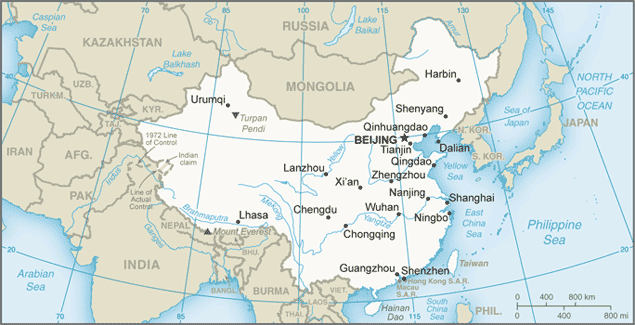

The current coronavirus outbreak that originated in Wuhan in the Hubei province of China has become even more deadly and less contained. To add on more fears, there are now indications that the virus is easier to spread than originally thought. As of January 26, 2020, with official estimates still changing, there are more cases and more fatalities than global health officials would have hoped. The reports now indicate that the virus can be spread even before symptoms appear.
Saturday’s count of more than 1,300 reported cases and more than 40 deaths has, as of Sunday morning reports, risen by perhaps another 1,000 cases with close to 60 deaths. On top of Wuhan and surrounding cities being closed off, outbound group travel from China has been suspended, and Hong Kong is now denying access to anyone who has been in Wuhan in the past two weeks.
The loss of life and suffering from illness is always the worst part of any outbreaks, epidemics and pandemics. Unfortunately, there is also an economic case that has to be considered in a global economy in which a virus moves from one nation to others. This is when portions of local economies have shut down and the impact begins to spread into other sectors and to other nations.
Wuhan is a city of more than 11 million people and is a major transportation hub inside China. The United States has organized a plane to remove Americans from the city and other nations are pursuing the same strategy. Shutting down a major transportation and manufacturing is one thing, but that tally of over 11 million people is roughly the size of the official populations of New York City and Los Angeles combined. With more cases and with more countries on the list of confirmed cases, the coronavirus is bringing additional challenges to what are already very fragile economies. Billions and billions of dollars are already showing up in stock losses for the companies with direct and indirect exposure.
To complicate the economic and fiscal impact further, the rapid spreading of the 2020 coronavirus outbreak in China also hit right at the start of Chinese New Year, which happens to be the Year of the Rat. The Lunar New Year was already expected to close much of China for the week ahead. Now the coronavirus has brought event cancellations. China has temporarily closed some 70,000 movie theaters to help curb the spread of the coronavirus, and large event venues are being closed for the time being. Again, all this comes with a serious loss to the economy.
This coronavirus outbreak is far from the first such case in the modern era. SARS, which was reported to be less than 1,000 deaths back in 2003, was perhaps the most memorable of the outbreaks in Asia as one of the first modern-era global scares. That had a direct impact on travel to China and the surrounding nations. There have been multiple Ebola scares in the past few years alone coming out of Africa. A cholera outbreak in Yemen, swine flu in India and other outbreaks have been far more deadly than the current numbers indicate. Also, multiple scares from swine and avian flu have been great concerns and have devastated animal populations. The 2019 African Swine Flu devastated China’s pig population, and China has imported record levels of pork and other meats to replace the demand.
There is no simple way to try to minimize or discount deadly viruses and other outbreaks. One relative reference would be that tens of thousands of deaths in the United States alone can come from each flu season. The U.S. Centers for Disease Control and Prevention (CDC) already has estimated that the 2019/20 flu season has seen 15 million to 21 million cases of the flu through just January 18, 2020, with 140,000 to 250,000 hospitalizations and an estimate of 8,200 to 20,000 flu-related deaths. As with most illnesses, the mortality rates are generally much higher among infants, the elderly, those with cardiopulmonary conditions and those with compromised immune systems.
China has halted almost all public transit in and out of Wuhan and the surrounding areas in an effort to contain the coronavirus from spreading even more than it has. On top of the isolated cases in the United States, confirmed cases have also been reported in Vietnam, Thailand, Nepal, South Korea, Japan, Singapore, France, Australia, Taiwan and the territories of Hong Kong and Macau. Canada has been added to the list of nations, and as of Sunday morning there was a third confirmed U.S. case in California from a patient who had traveled to Wuhan.
At this stage, it may seem too soon and too difficult to try to calculate the economic impact in China, the United States and globally. Most pandemic scares and other geopolitical scares usually come with only short-term economic and market impacts. What is not impossible to see right now is that there have already been billions and billions of lost market capitalization rates in dollars among just some of the top Chinese companies listed in America and in the value of U.S. companies that have direct exposure to Wuhan and other closures or curtailing of operations around China. Still, oil fell on Friday for the fifth straight day, with part of the blame on weakening demand if the coronavirus threat grows, and that removed billions of dollars worth of value in the already weak energy sector.
General Motors Co. (NYSE: GM) has a large manufacturing facility in Wuhan, as do other global automakers. With a 1.6% loss to $34.31 on Friday, GM lost about $750 million in market cap. Anheuser-Busch InBev S.A. (NYSE: BUD) has a large brewing facility in Wuhan, which was its first in China. Its American depositary shares (ADSs) fell 0.66% to $77.74 on Friday for a loss of close to $1 billion in market capitalization. Other U.S. and western businesses are halting or curtailing operations locally or around China.
Walt Disney Co. (NYSE: DIS) announced that it was closing its Disneyland and Disneytown parks in Shanghai. Its shares slid 1.5% to $140.08 on Friday, and while that’s not the end of a run, it is a loss of $3.8 billion in market capitalization. That also represents the lowest closing price going back to last November, before its shares jumped from about $138 to $147.
McDonald’s Corp. (NYSE: MCD) has announced that it was closing its restaurant locations in Wuhan and surrounding cities where transportation has been hated. Its shares lost 1% to close at $211.24 on Friday, a loss of about $1.6 billion in market cap. Starbucks Corp. (NASDAQ: SBUX) also reportedly closed an unspecified number of stores in China. The 1.8% drop to $92.03 a share on Friday was close to a $2 billion loss in its market capitalization.
The U.S. air carriers are even taking a hit. United Airlines Holdings Inc. (NYSE: UAL) saw a 3.5% price drop on Friday to $81.90. American Airlines Group Inc. (NASDAQ: AAL) fell 4% to $27.64, with rival Delta Airlines Inc. (NYSE: DAL) falling the least of the big three with a 2.4% drop to $58.81 on Friday. All three majors have made allowances for schedule changes for flights in and out of China.
Many other companies in major economic sectors have been and will be affected by the most recent coronavirus outbreak.
Yum China Holdings Inc. (NYSE: YUMC) saw its shares fall from almost $50 at the end of the prior week to $44.25 by this past week’s close. Yum China has closed some KFC and Pizza Hut stores in Wuhan. Yum! Brands Inc. (NYSE: YUM), which collects a royalty from its former subsidiary, saw its shares down almost 1% at $104.98 on Friday.
Luckin Coffee Inc. (NASDAQ: LK), the recent hot IPO that is dubbed the “Starbucks of China,” saw its shares drop over 8% to $40.83 on Friday alone. That is down from about $50 just the week before. By losing close to $20% of its value from the prior week, that’s a market cap of $2.1 billion loss from its recent peak.
Melco Resorts & Entertainment Ltd. (NASDAQ: MLCO), with its main resorts and casinos in Macau, was a standout on Friday with a gain of three cents a share to $21.24, but this was trading at $25.00 just a week earlier.
China Life Insurance Co. Ltd. (NYSE: LFC) is worth $115 billion, even after losing 1.6% on Friday and having lost close to 8.4% from the prior week’s closing bell. That’s roughly a loss of $10 billion in market cap for the week.
New Oriental Education & Technology Group Inc. (NYSE: EDU) saw a 3.4% drop to $124.61 on Friday, but the top Chinese education company had been above $135 the prior week. TAL Education Group (NASDAQ: TAL) fell 3.6% to $46.68 on Friday, and that is down from $54.00 the prior week. That’s a combined $1.6 billion or so in market cap losses just on Friday, and even greater for the whole week.
Huazhu Group Ltd. (NASDAQ: HTHT), a hotel operator in China, saw a 2.5% drop to $32.31 on Friday, but this was down from above $39 just a week earlier. That’s close to $2 billion in market cap lost in a week.
Trip.com Group Ltd. (NASDAQ: TCOM), the leader in online travel (including Ctrip.com), saw its shares drop by 6.9% to $31.90 on Friday, and this was a $39 stock just the week before. The company has allowed for expanded cancellations in hotels. That’s a loss of about $1.3 billion in market just on Friday, and a weekly loss of closer to $4.5 billion in lost market cap.
China Southern Airlines Co. Ltd. (NYSE: ZNH) saw its ADSs fall 2.5% to $29.59 on Friday, but the loss for the week was more than 13%, and that translates to over $1 billion in losses to the current $9.9 billion level. China Eastern Airlines Corp. Ltd. (NYSE: CEA) ADSs fell 1.4% to $24.09 on Friday, down over 12% for the week for a total weekly loss of more than $1 billion in market cap.
While there are actually some winners here, it’s important to consider just what has been happening and what the outlook is for the global picture between the United States and China alone. China’s look at 2019 gross domestic product showed annual growth of 6.1%, but it was decelerating into the end of 2019 ahead of China signing its phase-one trade pact with the United States. The International Monetary Fund recently down-ticked global growth for 2020, but that was before considering any impact from a pandemic or epidemic scare was even large enough to try to factor into models. And GDP growth in the United States is barely expected to be 2% in the fourth quarter of 2019, with most economists still expecting a relatively slow growth phase in 2020.
Losses in market capitalization are definitely not the same as true economic costs against the broader economy. That said, it counts against the wealth of their shareholders and businesses shutting down or curtailing operations can have a direct impact on wages, consumer spending, transportation and employment trends. That can all add up to the multiple billions of dollars of real economic impact, when you consider the size of the U.S. and Chinese economies.
As with almost all pandemic scares and other national and global issues, some speculative stocks manage to see their shares rise sharply. As many of these companies are under a $50 million or $100 million basic size threshold, some of them have been overlooked or omitted. And if history repeats itself, many of the companies that see huge surges from related news often come back to earth.
Lakeland Industries Inc. (NASDAQ: LAKE) is not a biotech, but it occasionally gets to play tag-team when there are biotech movers or biohazard situations around major diseases and industrial waste issues. After all, it makes self-contained industrial protective clothing and containment suits for hazmat and all sorts of applications. Lakeland’s share price jumped just over 25% to $13.77 on Tuesday, but even a 5% gain on Friday made for a $13.74 closing price. This was at $10.97 as of the prior week’s close, and its new market cap is just $110 million.
Allied Healthcare Products Inc. (NASDAQ: AHPI) saw its shares surge 93% to $2.90 on Friday, but it barely has an $11 million market cap, and it only just recently regained Nasdaq listing compliance. Among its breathing and respiratory products are facemasks and other products.
Alpha Pro Tech Ltd. (NYSE: APT) makes masks and disposable protective apparel, and its shares rose almost 18% to $6.00 on Friday to end with a $78 million market cap. That’s a 71% gain from the $3.50 share price the prior week, and the more than 26 million shares that traded this last week as a whole (more than 6.5 million average each day) compares with a typical trading volume 10,000 to 20,000 shares before that.
BioCryst Pharmaceuticals Inc. (NASDAQ: BCRX) managed to slide back from highs earlier in the week with a 6% drop to $2.81 on Friday, but the $2.75 price from the prior week rose to as much as $3.35 earlier in the week. BioCryst has a $432 million market cap, and its galidesivir is being tested in Phase 1 studies for multiple viruses, including coronaviruses.
Novavax Inc. (NASDAQ: NVAX) often sees its shares surge around global health and pandemic scares. While it rose not even 2% to $7.80 on Friday, this $250 million market cap stock was trading at less than $6 a week earlier.
Moderna Inc. (NASDAQ: MRNA), which was the largest biotech IPO in America, closed down 1.6% at $21.12 on Friday, with a market cap of $7 billion. This company’s stock rose to as much as $23 after the Coalition for Epidemic Preparedness Innovations (CEPI) gave funding to accelerate its work on a coronavirus vaccine.
Cerus Corp. (NASDAQ: CERS) is targeting the MERS coronavirus and exploring to adapt its treatment to the current Wuhan strain. Cerus closed up just 2% at $4.57 on Friday, with a $650 million market cap, but that is up from $4.07 the prior week.
Co-Diagnostics Inc. (NASDAQ: CODX) fell 7% to $1.88 on Friday, with barely a $32 million market cap, but that was up more than 50% from earlier in the week. It may have been higher except that it sold shares to raise capital at a deep discount in a share offering. The company is preparing a coronavirus test.
Vir Biotechnology Inc. (NASDAQ: VIR) saw its shares rise 17.5% to $19.95 on Friday, impressive enough for a $2.3 billion market cap, but that is up 23% from its lows of the week. The company has an antibody for another coronavirus strain, and management is said to be testing to determine if it is effective against this Wuhan strain.
Inovio Pharmaceuticals Inc. (NASDAQ: INO) closed up 10% at $4.24 with a $424 million market cap on Friday, but that’s up a total of more than 28% from the close of the prior week. Inovio has been selected by the CEPI with a grant of up to $9 million to develop a vaccine against the recently emerged strain of coronavirus.
NanoViricides Inc. (NASDAQ: NNVC) saw a whopping 54.5% gain on Friday alone, but it’s still just a $32 million market cap. This stock rose over 150% in the last week, despite having closed on an $8.6 million public stock offering at just $3.00 per share. The company is targeting nano-medicines targeting swine and avian flu, as well as Dengue and Ebola.
An image from the CIA World Factbook shows a map of China to show Wuhan’s positioning in the country, in relation to Beijing, Shanghai, Shenzhen and Hong Kong.

Sponsored: Attention Savvy Investors: Speak to 3 Financial Experts – FREE
Ever wanted an extra set of eyes on an investment you’re considering? Now you can speak with up to 3 financial experts in your area for FREE. By simply
clicking here you can begin to match with financial professionals who can help guide you through the financial decisions you’re making. And the best part? The first conversation with them is free.
Click here to match with up to 3 financial pros who would be excited to help you make financial decisions.
Thank you for reading! Have some feedback for us?
Contact the 24/7 Wall St. editorial team.
 24/7 Wall St.
24/7 Wall St. 24/7 Wall St.
24/7 Wall St.


